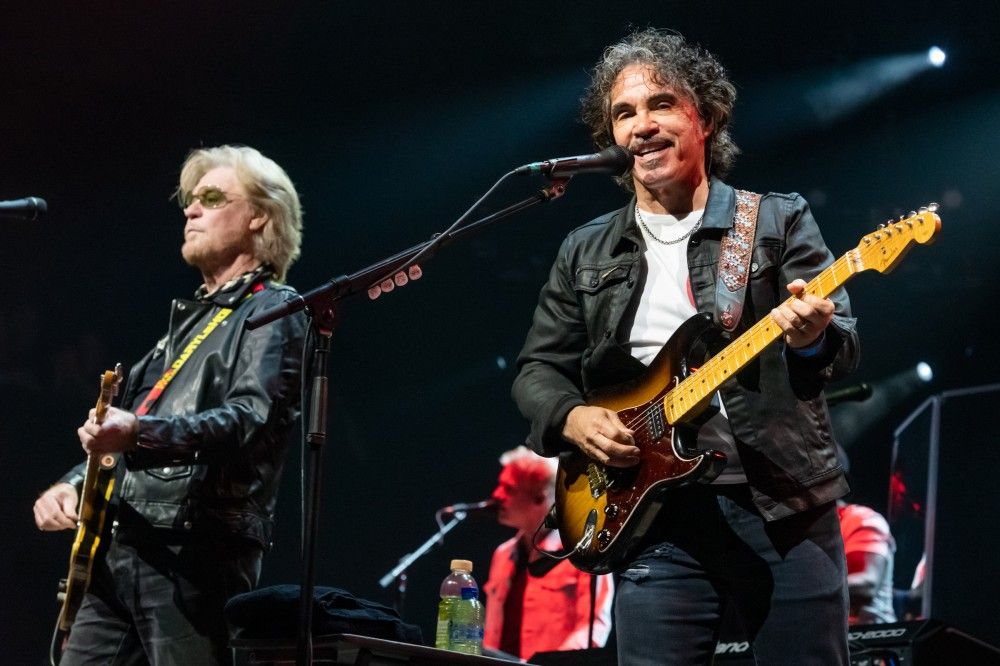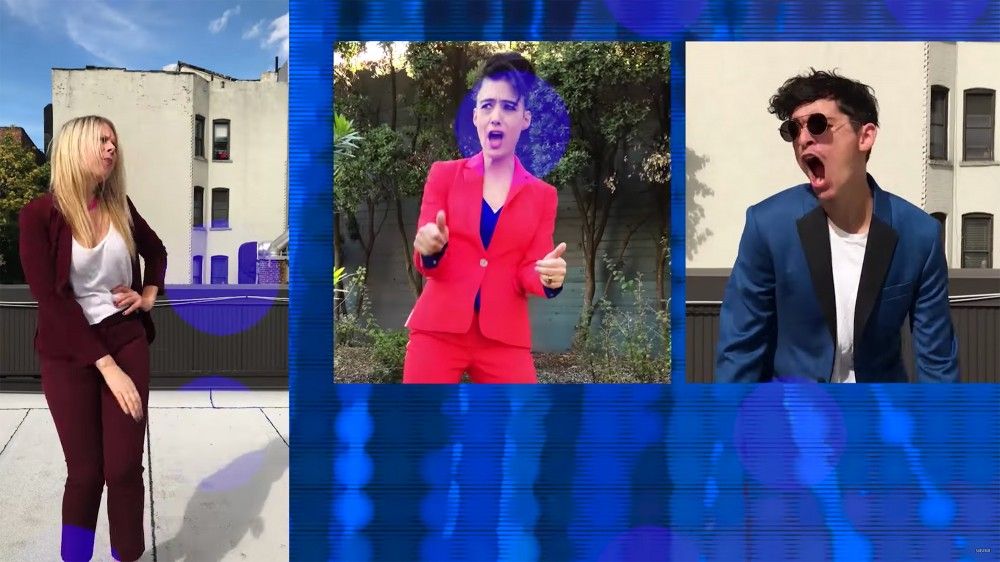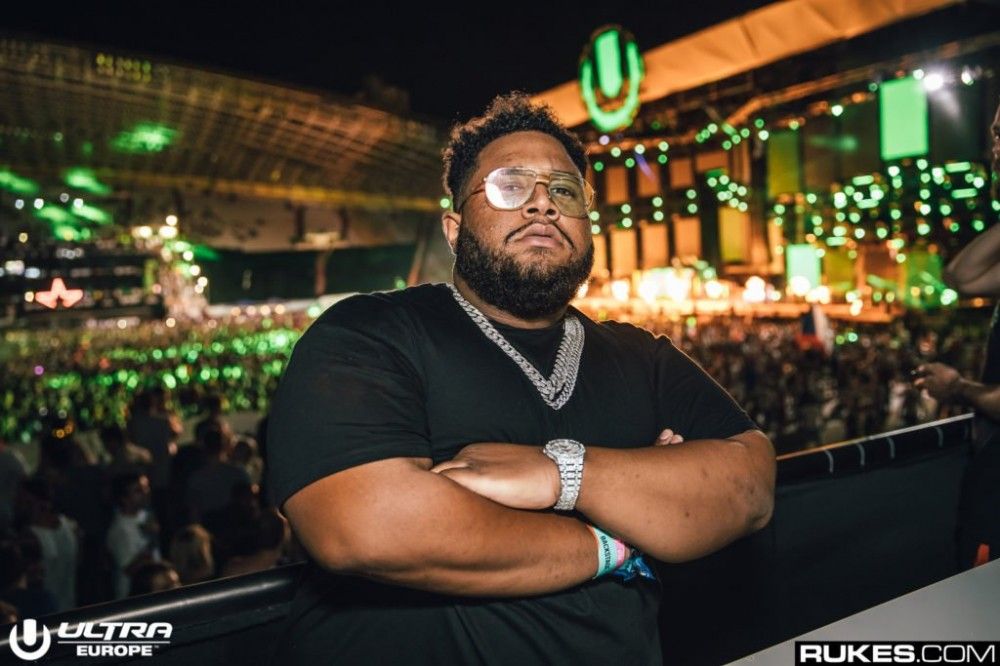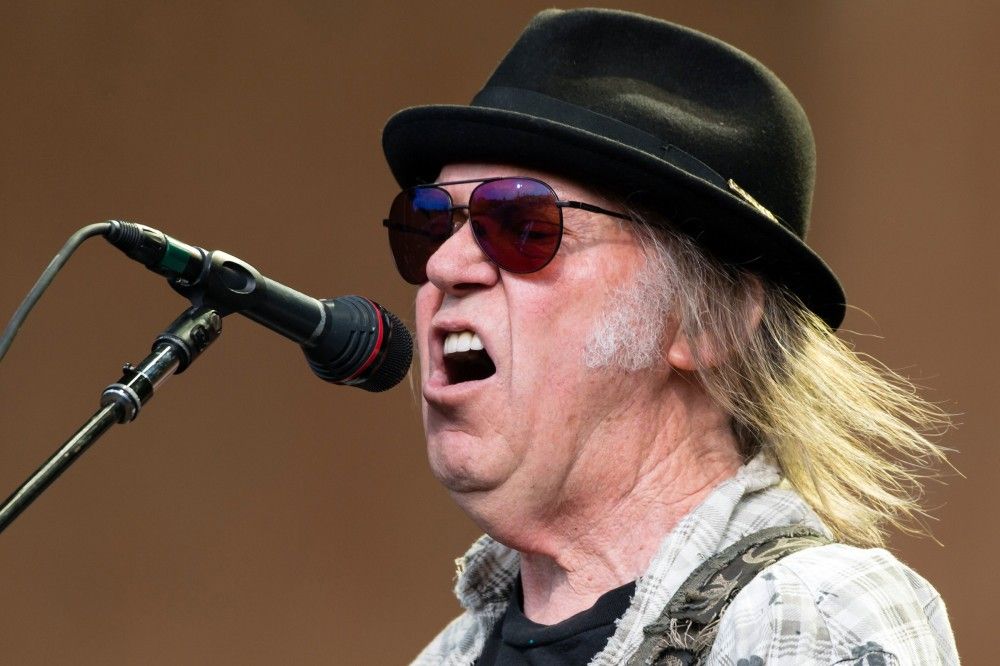
Daryl Hall and John Oates Are Plotting a New Album, Not a 50th Anniversary Celebration
and are going to spend much of the summer on the road with Squeeze and KT Tunstall, but when the tour wraps, they’re hoping to turn their attention to their first collection of new songs since 2003’s Do It for Love.
“I’m in the process right now of coming up with some ideas,” Hall tells Rolling Stone. “I’ve been working with some people on them right now I don’t want to talk about yet.”
For now, he’s working on the music independently of Oates. “I have so much going on, so to be honest I’m not quite there,” Oates says. “Daryl has shifted his focus to Hall & Oates, which is great. I’m going to jump on board, for sure, but it’s in the early, preliminary days of it. He’s very excited, and he’s been spending some time in Europe. He’s found some young producers he’s kind of getting energized with. He’ll jump-start the process and then I’ll definitely jump on board later.”
Hall explains that this method of beginning an album on his own and bringing Oates in later is far from from unusual. “We don’t write together very much, never did really,” he says. “We went separate ways creatively. We needed to have that space apart, in that respect, even though we never stopped playing together, but now it just feels … I don’t know how to describe it. When it feels right, it feels right.”
Groups led by two people have been notoriously unstable in rock history. The list is endless, but everyone from the Everly Brothers to Simon and Garfunkel, the Kinks, Oasis, and the Black Crowes have struggled to stay together. Somehow, have avoided the dark fates of those acts.
“The difference is that we aren’t a duo,” Hall says. “We aren’t Simon and Garfunkel. We are two people that run a band. It’s more like Mick Jagger and Keith Richards.” (Those two have certainly had their share of public disagreements over the years, but his point stands.)
This year marks the 50th anniversary of their formal partnership, but they aren’t billing the summer tour as an anniversary celebration, and they have no plans to commemorate it in any way. “It’s the same reason I don’t go to fuckin’ high school reunions,” Hall says. “I’m not into celebrations or milestones or awards of any of that crap. It’s all about the work to me.”
That said, the anniversary does bring their minds back to the very beginning of their partnership. They met as students at Temple University in 1967 and became close friends and roommates, but didn’t actually combine their talents until 1970.
“We were hippies just scrounging around in Philadelphia,” Oates says. “The whole thing was predicated on, ‘Hey, man, I’ve got some songs. You’ve got some songs. I’m not happy with what I’m doing. You’re dissatisfied with what you’re doing. Why don’t we just do something together and just see what happens?’ It was that casual.”
One of their first shows took place at an art gallery in downtown Philadelphia. They had no formal band at that point and took the stage with just a mandolin, piano, and acoustic guitar.
“We took note that night that the people in the audience weren’t just our age,” Oates says. “There were people in their early twenties, but also people in their forties and fifties. That is really still true today. We appeal to a wide variety of people. People come to our gigs now who are young enough to be our grandchildren.”
The band’s popularity peaked in the Eighties, when hits like “Out of Touch,” “Maneater,” and “Kiss on My List” were inescapable on MTV and Top 40 radio. That’s led to a rather unfortunate reality wherein their public image, at least to casual fans, is forever trapped in an era of tacky clothing, big hair, and questionable facial hair decisions.
“Everyone has photo albums tucked away in their closet with terrible haircuts and bad clothing choices,” Oates says. “My bad choices are on TV for the rest of my life. There is nothing I can do about. If I have any regrets about the MTV era, I would have been a little more discerning about the directors and the concepts we decided to use for our videos.”
Those hits, however, mean that the group can headline arenas and amphitheaters year after year and rarely face empty seats. The only problem is that they have too many hits to cram into one show. “We like to rotate them,” Oates says. “Last year we threw in ‘Is It a Star’ from the War Babies album. We probably hadn’t played that since 1975. The Eighties hits are so ubiquitous that we like to throw in some Seventies deep cuts to give a more balanced view of our career.”
And even though Hall is now 73 and Oates is 71, the thought of a farewell tour at some point down the line is not even in their minds. “I don’t think we’d ever do a farewell tour,” Oates says. “Every farewell tour I’ve ever heard about didn’t turn out to be a farewell tour, so I don’t know what the hell that means. Sure, if its a marketing ploy, hey, why not? Everyone needs a hook. Everyone need a schtick. Whatever.”
Also off the table is a special show where they play one of their classic albums, like Private Eyes or H20. “I don’t like that idea,” Oates says. “I get the appeal, but it’s not something I think about much to be honest with you.”
Right now, Oates focuses much of his creative energy on his solo work. He’s released four albums on his own over the past 12 years, and he supports them with tours at small venues. “It keeps me balanced,” he says. “I carry my own gear. I show up with my guitar in my hand and put the amp in the back of my car. It’s real and I love it. Then I go out there with Daryl and we’re flying around in private planes and playing the Garden and doing all that. It’s bigger than life. I love it.”
Hall, meanwhile, hosted the performance show Live From Daryl’s House from 2007 to 2017, and in 2014, he hosted the home renovation show Daryl’s Restoration Over-Hall on the DIY Network. They keep Hall and Oates activity to just about 40 to 50 shows a year so they have time for all these outside projects. “We have reached a point where we both have lives,” Hall says. “We take breaks. That means we have to stretch it out and do fewer shows, but each show is more important.”
Every time he steps onstage, Hall says, he gets the same thrill he did when the group first began. “There’s still that exalted feeling when I’m singing and hitting a certain place in a show and everything is clicking and the monitors are working and everything is working the way its supposed to work,” he says. “It’s a feeling that is very pleasurable. The only reason I still do it is that feeling, that fulfillment.”



